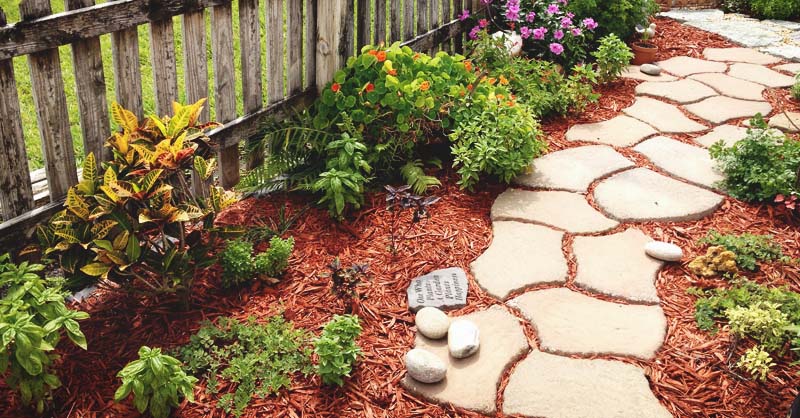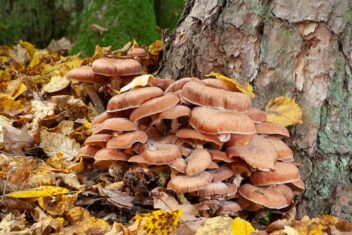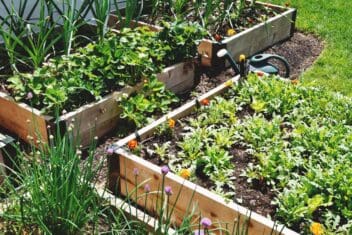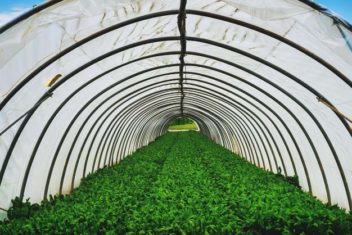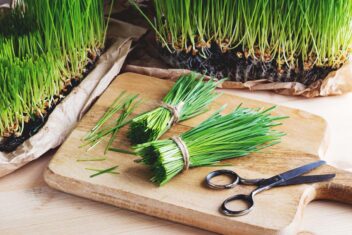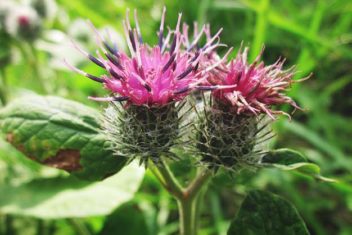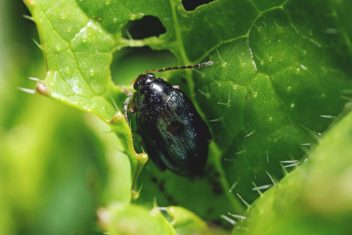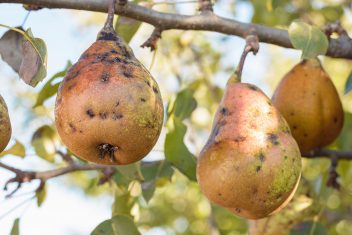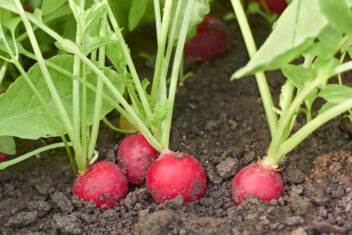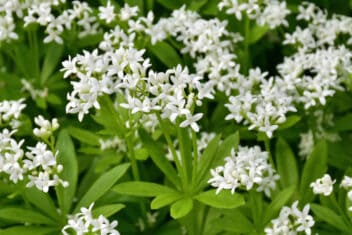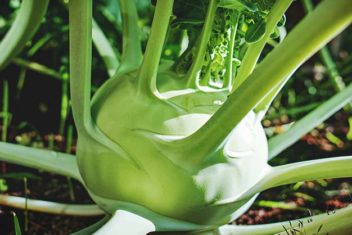Do weeds drive you nuts every year when you garden? Truthfully, I love gardening, but I hate weeds. It can take the joy right out of gardening.
But what can we do about it? Weeds are merely a part of gardening, right?
Well, yes and no. Weeds are something you have to deal with in the garden, but you can control them. It took me a few years gardening to figure out the best methods, but I’ve learned a few tricks and wanted to share them.
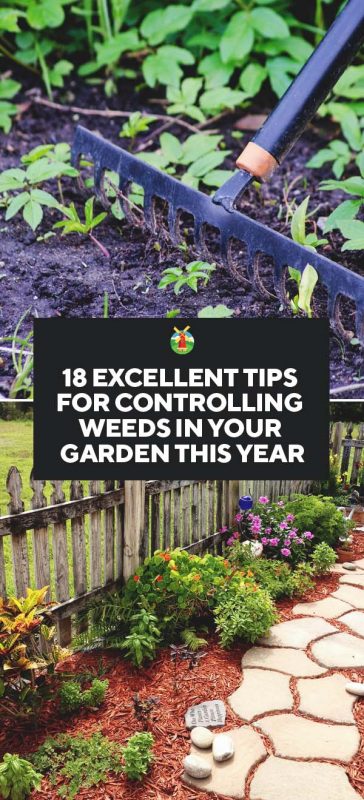
Here is what you need to know about controlling weeds in your garden:
What is Weed Control?
When tending to your garden, weed control is one of your top priorities. It’s important because weeds will steal nutrients, water, and sunlight from the plants you want in your garden.
Weed control is the act of ridding weeds from your garden. It sounds simple, but it can be difficult.
The more weeds you have, the less happy your plants are going to be. For this reason, you need to pay close attention to the weeds popping up in your garden. Below is a list of methods to control the weeds in your garden.
Hopefully, you’ll find some idea to help you maintain a gorgeous garden and keep weeds under control.
How to Control Your Weeds
1. Wheat and Corn Are Friends to Your Garden
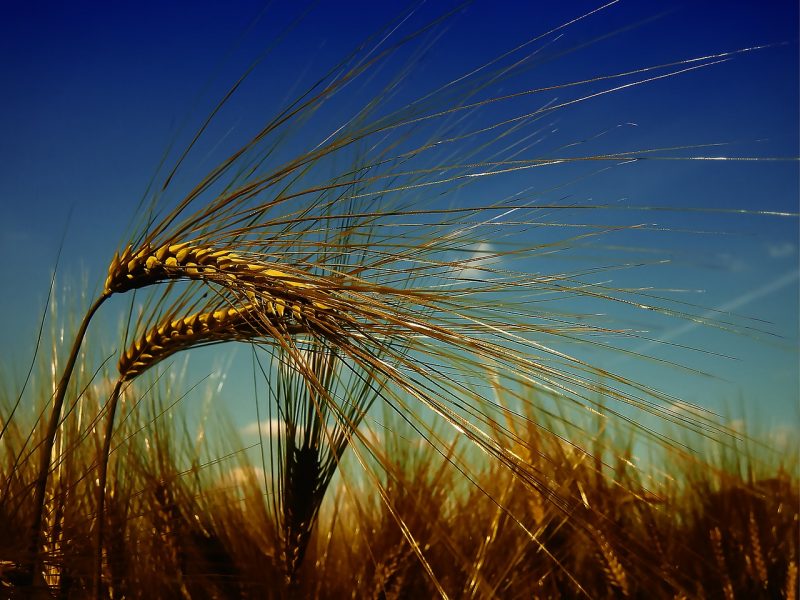
If you’re planning on growing tomatoes or squash in your garden during the summer growing season, you should consider this before winter.
In fact, if you plant wheat or corn as a cover crop during the winter, this can help control weeds around your tomatoes and squash.
We did this one year by accident. I grew fodder to feed our animals, and at times, we’d throw leftover fodder out on our garden. I should mention we grew fodder from wheat.
Wherever the wheat sprouted, we didn’t have weeds. My thought process is because the wheat grows close together, it smothers out the weeds.
However, if you grow wheat over the winter, it dies off before you plant your tomatoes or squash but has killed the weed seeds in the process.
2. Mulch Can Be Helpful
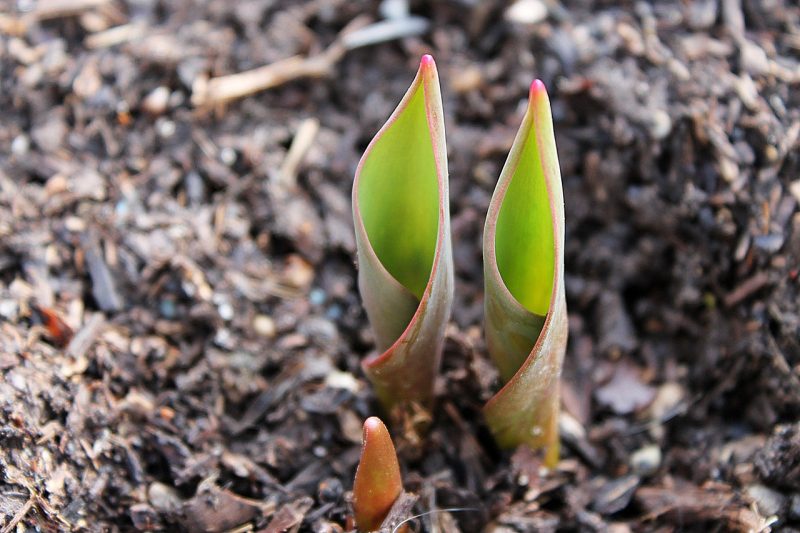
I’ll be the first to tell you; I don’t recommend growing a no-dig garden. My reason is the soil becomes much richer which is excellent for plants.
However, it also becomes better for weeds too. It takes a ton of organic matter and wood chips to smother them out.
But if you put thick layers of mulch around plants which are already planted, it would require less mulch and should be enough to keep the weeds down around your plants.
3. Plant Closer
Next, consider planting your vegetation closer. Most recommendations are given to keep your plants from touching at all when they’ve reached maturity.
This is a smart rule to follow if you are planting certain vegetables which are known for spreading disease by their leaves touching.
But if what you’re planting does not have this problem, you should shave the recommended planting distance down by 25%. By planting your vegetation closer, it doesn’t leave room for weeds to sprout in between the plants.
They are smothered out by what you want to be growing in your garden.
4. Let Your Weeds Grow First
This is a suggestion I’ve tried as well. If you make compost, sometimes it won’t get hot enough and burn the weed seeds within it.
When you spread your compost, the weed seeds germinate and pop up right along with your garden. To prevent this from happening, I spread my compost and organic matter over my garden at least a couple of weeks before planting.
The reason I do this is to give the seeds time to germinate and die before planting. I usually do this when it’s still cold outside.
Therefore, the seeds will germinate on warm days and freeze to death when we have a cold snap, which is great because it saves my back a little work.
However, if you live in warmer climates or where your weather is normal (that was a joke!), you can allow the seeds to sprout and plow them up before you plant your garden.
5. Weed When Wet, Hoe When Dry
When your garden has had a solid downpour fall upon it, it’s the ideal time to tackle weeds and pull them out by their roots.
The ground is moist, and weeds come out of the ground with minimal effort.
However, if you’re in the middle of a drought and weeds are still popping up, this is the wrong time to attempt to pull weeds by hand.
Instead, use your garden hoe and whack the weeds off at the ground. It will disrupt their growth and hopefully deter them from growing again.
6. Water Your Plants Only
When you water your garden, there are multiple reasons to water using soaker hoses. The most important reasons are soaker hoses can help stop diseases from spreading because there is no splash or runoff which carries dirt to the stems of your plants.
But most importantly for this topic is soaker hoses only water at the base of the plants you want them to. This stops water from being applied to germinated weed seeds.
Without water, weeds can’t prosper. If you want to stop the weeds, you’ll need to stop watering them. Using an irrigation watering system should do the trick.
7. Cover Your Garden Beds
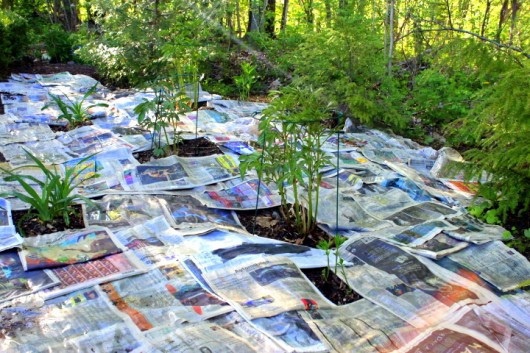
One of the best ways to deter weeds in your garden is to cover it. Before planting you should cover your garden with cardboard, newspaper, or black landscaping fabric.
Hold any of these options in place with heavy bricks to keep them from blowing away.
When you cover your garden, this stops sunlight from getting to the weeds. The weeds can then not germinate and grow.
Also, if you use cardboard or newspaper, it should compost and add to the soil quality of your garden too.
8. Organic Matter and Compost are King
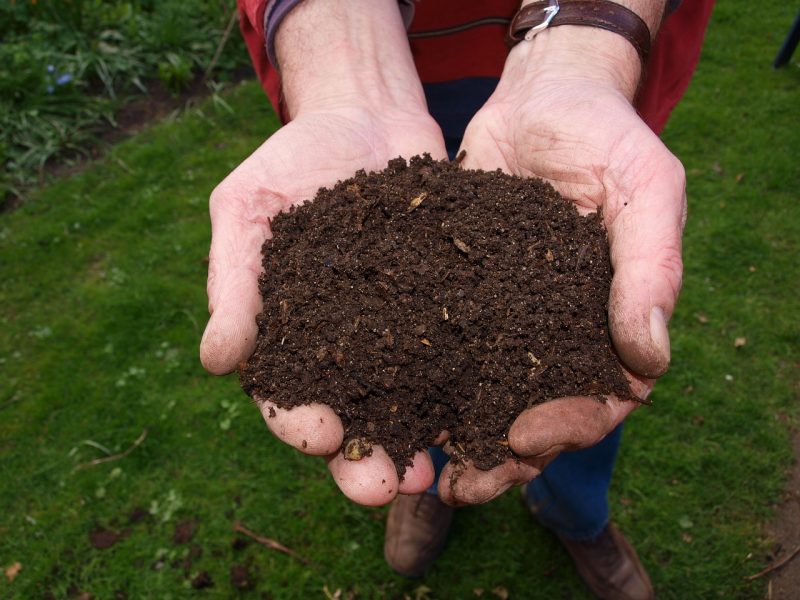
It’s recommended to use as much compost and organic matter in your garden as possible. Scientists aren’t sure of the exact reason behind this, but weeds don’t germinate well in organic matter and compost.
The more you add to your garden, the more difficult you make it on weeds to prosper there.
9. Stay on It!
It’s important not to give up the fight against weeds. If you quit fighting them, they’ll take over. If you keep pulling them out at an early stage, you’ll stay ahead of the game.
Be adamant about checking your garden and keeping weeds out of it as much as you possibly can.
10. Vinegar, Water, and Soap
If you aren’t comfortable with using chemicals, you can make a natural version of Round-Up by mixing vinegar, water, and soap.
You’ll spritz it on the weeds in your garden to kill them. Apply more if the first dosing doesn’t take care of the entire problem.
11. Weed Burner
You can purchase a weed burner and burn the weeds in your garden. Weed burner will safely remove larger weeds from your garden without adding any unwanted chemicals around your plants.
12. Don’t Let Weeds Seed
It’s important to stay on top of weeds before they go to seed. If you don’t pull weeds early on, they’ll reproduce like any other plant.
But if you can stay on top of the weed situation by pulling them as soon as they come up, you’ll stop weeds from taking over.
13. Dig with a Purpose
It’s important only to unearth dirt you’ll be planting in. If you dig where grass once was and don’t fill it, you leave room for weeds.
However, if you only dig a hole big enough for what you’re planting, you’ve left no room for weeds to sprout.
14. Goats are Friends
Unleashing a goat in your vegetable garden is hard. You can, however, cover your crops with wire mesh and tether a goat in your garden from time to time.
It will allow them to eat the weeds in between the rows of crops. It won’t stop you from pulling weeds in between your plants, but it will take some of the work off of your shoulders from the less important spaces in your garden.
15. Use Boiling Water
If you have weeds popping up in between your plants, be careful with this method. You need to boil water and drop it on the weeds only.
Allowing boiling water to hit your plants, could cause harm to it. If you have weeds near your plants but not right on top of them, this method could still work.
16. Sprinkle with Salt
For the weeds closer to your vegetables and other plants, it’s a good idea to sprinkle salt on them. It will burn the weeds.
Again, use caution when applying the salt. You don’t want it damaging your plants in the process of burning your weeds.
17. Vinegar Only
Vinegar is a safe option for pouring on weeds near your plants. It’s natural but potent as well. Meaning it can take out your weeds without doing much harm to your plants.
18. Round-Up
When all else fails (and if you aren’t an organic gardener) you can use round-up to take out your weeds.
Personally, I don’t recommend using chemicals in your garden because it defeats the whole purpose of gardening and they might make its way into your food, but this is a personal choice for you to decide on how you’d like to handle your garden.
How to Pull Weeds
Pulling weeds matters. If you don’t remove the entire plant from the ground, you leave room for it to regrow. No matter what option you choose from above to kill the weeds, you’ll still need to discard them.
Which is why it’s important to understand how to pull weeds out of the ground properly and in their entirety.
You’ll begin by making sure you pull weeds when the soil is moist. It will make it easier to pull the entire plant out.
From there, you’ll grab the top of the plant firmly and pull, making sure to pull the entire plant out. If not, you can dig under the dirt with your hands or garden tool to remove the rest of the weed and its roots.
It’s a simple process, but one which has the potential of helping your garden thrive.
